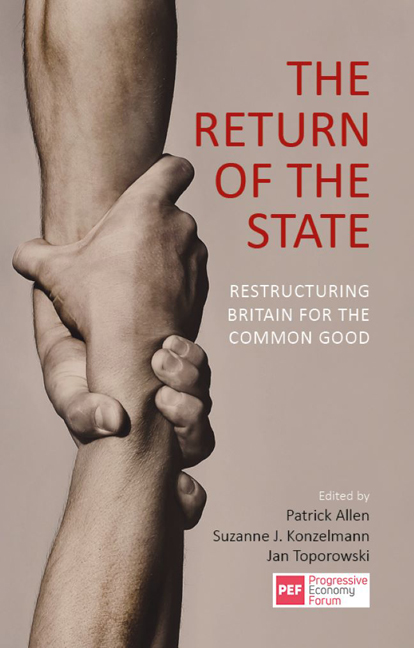9 - An ownership revolution
Published online by Cambridge University Press: 22 December 2023
Summary
Britain needs an ownership revolution. It needs its privately owned companies to be driven by a constitutionally entrenched purpose beyond profit making, to which all its stakeholders, including anchored investors, are committed. It needs many more firms to be diversely owned either as employee-owned companies, mutuals, co-operatives, trusts or partnerships, with sound constitutions that ensure their good governance and management. It needs more and better social ownership of assets it believes should be used to deliver the public good, which would otherwise be unobtainable. To secure all this, it needs vastly enlarged pools of dedicated capital to support the revolution – in particular, sovereign and citizen wealth funds alongside a reorganized and repurposed asset management industry. This ownership revolution is the precondition for achieving every worthwhile economic and social aim. There is no prospect of more justice, rising living standards and greater fairness without it. Ownership reform should be front and centre of our economic and political debate.
Ownership is fundamental. It is owners who shape the constitution of enterprise, and, in consequence, firms’ agility, innovative capacity and productivity. It is the character of ownership that confers trust and commitment between all the firms’ stakeholders. It is owners who give the green light to investment, employee participation and voice, customer engagement and the full acceptance of responsibilities to the environment. It is not enough in the twenty-first century to follow Milton Friedman's famous and much-quoted statement that the social responsibility of business is to increase its profits, so long as it stays within the rules of the game – a qualification that Friedman's critics often put aside as they seek to damn him.
But even accepting the qualification, Friedman's argument in wrong. Of course, no business is sustainable without profit; but owners are part of society, too. It is therefore not enough simply to follow the letter of the law around an overriding goal to maximize profits, arguing that the legal rules of the game completely and totally capture all society's preferences. That is to absolve business of all responsibility for the society of which it is part, claiming that achieving social and public good is only the government's provenance and government is all-seeing. Both claims are self-evident poppycock, and excuse owners from using their prerogatives well.
- Type
- Chapter
- Information
- The Return of the StateRestructuring Britain for the Common Good, pp. 113 - 124Publisher: Agenda PublishingPrint publication year: 2021



